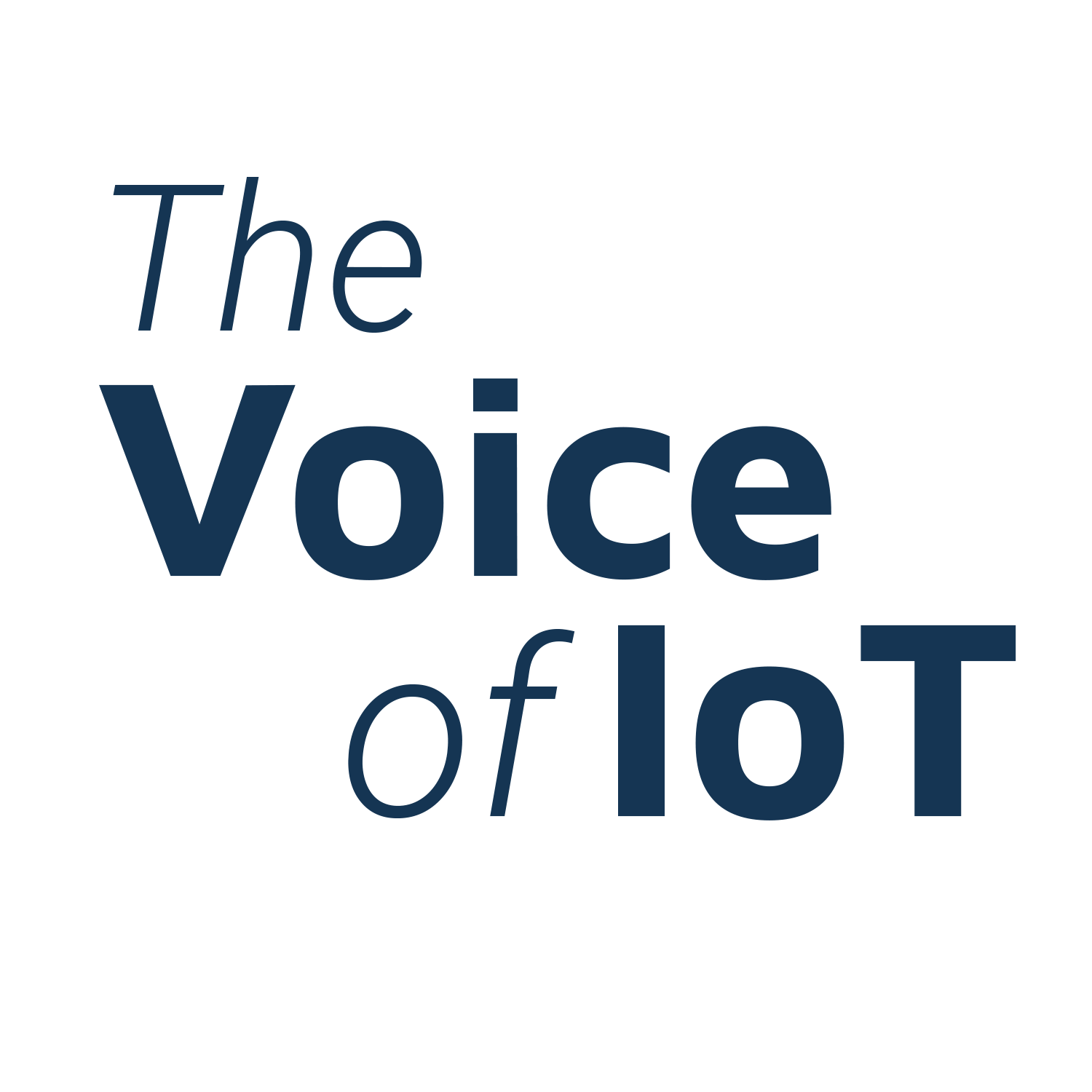The Voice of IoT. June 2022
Making the IoT journey happen in Africa
In Africa and across the globe, there’s so much IoT can do to make life smarter, easier, faster, and better with regard to having a stable source of energy supply.The enormous potential that IoT has upon everyday services and quality of life is even further highlighted when contrasted against the social and economic structures of a continent such as Africa. Here, IoT can create life-changing benefits.
Elijah Christopher. Journalist and Creative Director at A New Touch Of Africa. Nigeria.

As a young boy growing up in Africa’s most populous country and the 7th largest in the world, I have witnessed the great changes Nigeria has experienced over the last couple of decades. I have personally experienced the rise of its economy, the 29th largest GDP in the world, just behind Austria, and ahead of countries such as Israel and Norway. Its expanding emerging markets have brought hope and prosperity to millions of Nigerians. But there is so much more to do.
A story from my home
Sunday is usually a big day in my country. As the sun rises over my community in Abuja – the Federal Capital Territory of Nigeria, people are up getting ready for church. Under a baking hot sun, people return home after congregating and fellowship, whilst others use the opportunity to visit family and friends before Monday kicks in again with its mundane 9-5 routine. People spend their weekends forgetting the challenges of the working week which leave them stressed from fighting with heaving thick traffic and sitting in long columns of traffic jams after work.
Not many get to have breakfast before leaving for church. If you are lucky you get brunch if the sermon is short and the traffic is smooth. But often, lunch is often the first meal to be eaten on a Sunday, and many only get to eat the same meal they’ve already had for lunch as dinner.
It was on such a Sunday, that I found myself in the kitchen with my Mom when our 12.5kg cylinder ran out of gas. That Sunday, we were expecting guests who were already a stone’s throw away from our street. The gas station where cylinders are weighed and refilled was about a kilometer away, and the rice and stew my Mom was preparing was only half-way cooked.
Our guests were already knocking on our door as we were forced to continue cooking using a stove filled with paraffin as an alternative.
If you’ve ever used one of those stoves at home, you know what it feels like to set one up. Paraffin, also known as kerosene, as it is called in Nigeria, is a dirty and dangerous source of cooking fuel, common across Africa. It always needs to be handled with respect and extreme care as it is poisonous and can cause severe illness, even death if ingested. Many injuries and fires happen across African communities because paraffin stoves are accidentally knocked over or explode, causing severe burns. But paraffin is cheap and easily accessible. Gas is not.
While my Mom welcomed each of our guests with a glass of water and fed them with conversation starters in place of appetizers, borrowing words lifted from the morning’s sermon, I was in the kitchen thinking.
Why isn’t there a simple solution for gas cylinders to avoid this situation? Surely there is already something that exists that every family such as mine could use? Isn’t this a perfect application for the Internet of Things?
Not many get to have breakfast before leaving for church. If you are lucky you get brunch if the sermon is short and the traffic is smooth. But often, lunch is often the first meal to be eaten on a Sunday, and many only get to eat the same meal they’ve already had for lunch as dinner.
It was on such a Sunday, that I found myself in the kitchen with my Mom when our 12.5kg cylinder ran out of gas. That Sunday, we were expecting guests who were already a stone’s throw away from our street. The gas station where cylinders are weighed and refilled was about a kilometer away, and the rice and stew my Mom was preparing was only half-way cooked.
Our guests were already knocking on our door as we were forced to continue cooking using a stove filled with paraffin as an alternative.
If you’ve ever used one of those stoves at home, you know what it feels like to set one up. Paraffin, also known as kerosene, as it is called in Nigeria, is a dirty and dangerous source of cooking fuel, common across Africa. It always needs to be handled with respect and extreme care as it is poisonous and can cause severe illness, even death if ingested. Many injuries and fires happen across African communities because paraffin stoves are accidentally knocked over or explode, causing severe burns. But paraffin is cheap and easily accessible. Gas is not.
While my Mom welcomed each of our guests with a glass of water and fed them with conversation starters in place of appetizers, borrowing words lifted from the morning’s sermon, I was in the kitchen thinking.
Why isn’t there a simple solution for gas cylinders to avoid this situation? Surely there is already something that exists that every family such as mine could use? Isn’t this a perfect application for the Internet of Things?
IoT and me
It was on that very day, that my interest for IoT was sparked. Since then, I have followed a path of entrepreneurship focused on the gas petroleum industry and the manufacturing of sustainable and innovative gas cylinders. My mission has been to evangelize the need for smarter gas cylinders, more efficient and simpler services around their supply and re-filling, as well as help communities move away from “dumb” gas cylinders flooding the African market. But most importantly, make paraffin stoves a thing of the past.
With the right devices, connectivity to the internet, and a simple end-application software, my Mom and I would have been able to get alerts and be informed about the level of the remaining gas in the cylinder without being taken by surprise - on a Sunday of all days – whilst expecting family friends.
This is just one case scenario but there are countless more where IoT could be used to bring simple, but enormously valuable benefit to not only my home community of Abuja, but all of Africa.
With the right devices, connectivity to the internet, and a simple end-application software, my Mom and I would have been able to get alerts and be informed about the level of the remaining gas in the cylinder without being taken by surprise - on a Sunday of all days – whilst expecting family friends.
This is just one case scenario but there are countless more where IoT could be used to bring simple, but enormously valuable benefit to not only my home community of Abuja, but all of Africa.
The future is here
The prevalence and growth of IoT technologies has been incredible. Although still growing, it remains an interesting and exciting phenomenon across many industries. All you need to do is look at pharmaceutical companies in Switzerland, financial firms in New York City, or automotive companies in Germany, Japan and the USA, to notice the steady growth and evidence of the positive impact IoT has had thus far.
Even in parts of the world where economic resources are not as abundant such as India, there are clear positive indicators of similar such cases where IoT has been employed with great effect, to improve the quality of life of urban communities. If we wish to create a future that is both innovative and sustainable for everyone, then economies of all sizes need to move in the same direction. IoT technologies such as LoRaWAN can help enable us to get there. With characteristics of very low power consumption, very small data packet sizes and ability to transmit over very long distances, typically 12-15kms in rural environments, the technology is perfectly suited to gas cylinder monitoring and much, much more.
On the same IoT network, along with monitoring gas cylinder levels, authorities could monitor waterways for rising levels, warning communities and thus saving lives and avoiding property damage. Infrastructure could be monitored for outages and leaks, resources dispatched more efficiently to perform checks and maintenance when things are not operating as they should be. Municipalities could offer improved waste management and collection services. The possibilities with IoT are endless and very cost-effective.
Even in parts of the world where economic resources are not as abundant such as India, there are clear positive indicators of similar such cases where IoT has been employed with great effect, to improve the quality of life of urban communities. If we wish to create a future that is both innovative and sustainable for everyone, then economies of all sizes need to move in the same direction. IoT technologies such as LoRaWAN can help enable us to get there. With characteristics of very low power consumption, very small data packet sizes and ability to transmit over very long distances, typically 12-15kms in rural environments, the technology is perfectly suited to gas cylinder monitoring and much, much more.
On the same IoT network, along with monitoring gas cylinder levels, authorities could monitor waterways for rising levels, warning communities and thus saving lives and avoiding property damage. Infrastructure could be monitored for outages and leaks, resources dispatched more efficiently to perform checks and maintenance when things are not operating as they should be. Municipalities could offer improved waste management and collection services. The possibilities with IoT are endless and very cost-effective.
Not the end, but just the beginning
With support from political policy makers backed-up with strategic partnerships, IoT could be successfully deployed to provide more solutions to problems, bringing visibility where none existed before and bringing real digital information, reliably, and accurately to where it’s needed.
The world is a fast-changing place. I believe that IoT has the power to bring great change to the future of the gas industry, not only in Nigeria, but across Africa and the whole world. Maybe along the way it can also help me to make paraffin stoves a thing of the past. Just imagine it.
The world is a fast-changing place. I believe that IoT has the power to bring great change to the future of the gas industry, not only in Nigeria, but across Africa and the whole world. Maybe along the way it can also help me to make paraffin stoves a thing of the past. Just imagine it.
Biography Elijah Christopher
Elijah Christopher is a lifelong creative artist and a journalist for “A New Touch Of Africa”, an American news media outlet focusing on Africa-related issues, new technologies and innovations. He has contributed to several published works, most notably a collaborative poem celebrating Scottish poet Edwin Morgan and in 2021 was the winner of the DIAJ Award for his photo-artistry. As an avid entrepreneur and IoT enthusiast, Elijah pursues interests at the crossroads of social impact and education, investigating and evangelising innovative technologies in order to inspire next generation African innovators to create positive change.

